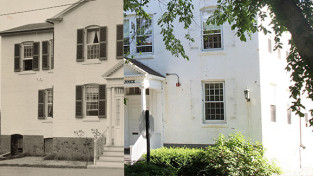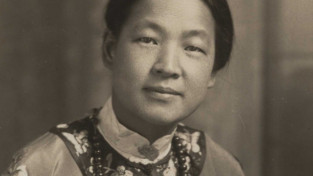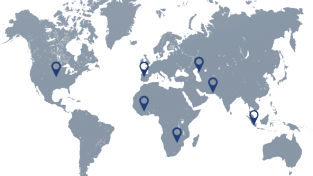The International Experience: Dhanashri Patil ’13
Student Edge Extra: Extended Comments from Dhanashri Patil ’13
Dhanashri Patil ’13, who hails from Gondawale, India, talks more about her experiences as an international student at MHC
Coming to the U.S. and adjusting to everything (food, weather, culture, transport, the education system, etc.) was not an easy task for me but like everyone else, I have managed to do it and the first few months at Mount Holyoke seem very distant now.
Arrival
The visa process went smoothly for me as I received the documents I needed on time and the application was pretty straightforward. Even though I did not need tax help until later, I feel McCulloch Center did a great job at helping international students. They offered workshops and I got all the help I needed in filing my tax return.
Getting to South Hadley from Boston was a problem. There was only one ride from college that would bring new students on campus and I missed it. I had no idea how the bus system worked in this country and had to call the McCulloch Center’s office multiple times to know how I could get here.
I had a little trouble exchanging money after arriving on campus. I had cash in Indian rupees and when I contacted Bank of America they said that due to legal restrictions they could not exchange Indian rupees. So I had to send the cash to my friend in Boston who exchanged it for me at Logan Airport. This process took a long time and I wish there was something I could have done to get the money quickly.
Orientation
Even though at the time I felt like it was a long orientation, now I think it was necessary. It was a good time to get to know other students and get our questions answered by MHC students in an informal setting. Moreover, the college provided free calling cards to international students and I truly appreciated it. That was the only way I could call my parents and tell them that I had arrived safely. I was not in touch with them for almost four days after I left my country and they were really worried. Overall, the orientation team did a wonderful job. I do think they could add more practical things to the experience, such as treasure hunts on campus and making trips to the other five colleges and the Hampshire Mall on PVTA buses, so that we could get to know our way around. (I had hard time finding my way around this campus for almost three weeks!) Even though I had bus maps and schedules with me, I got lost a few times (May be it’s just me).
Friends
I mostly hang out with international students and do not really spend time with domestic students as much as I would like. I think this is the case with most international students here. I think it’s because international students go through similar situations with cultural shock, adjustment to food/weather, educational system etc., after arriving here and this leads to easier bonding.
I would say that culturally, things can sometimes be hard. For instance, initially I could not tell if a person I knew was my acquaintance, classmate or a really good friend. People here have different ideas and expectations about friendships than back home. For instance, I was told that just saying “hi” or talking about how a class was did not necessarily make someone your friend. Also, if someone is your friend, it does not mean they would want to go have lunch with you when you run into them. They can just tell you that they don’t feel like eating with anyone that day and that it has nothing to do with you. All this has taken some time for me to adjust to but now I am mostly correct when I interact with friends and other people.
In the classrooms, I do see international students (and sometimes myself) having trouble speaking up. It is mostly because they are not expected to speak up in the class in their home countries, and interrupting a class to ask questions is mostly considered as a rude gesture. In my case, when professors make it clear that we can ask questions or speak up, I am much more comfortable doing so.
The SAW Center is a great resource to work on writing if we need help. They are happy to read a paper just to see if there are any grammatical errors. One thing that I still cannot improve is use of the passive voice. It is perfectly okay to use the passive voice in papers in India in Hindi, English, and my mother tongue, Marathi. However, after coming here I was told that I should try to not use it. I am still trying.
Plagiarism
Plagiarism was a new issue for me while writing papers at Mount Holyoke because here it is taken much more seriously than what I am used to. In fact, I did not even know much about what counts as plagiarism and what doesn’t. I had to learn to be very careful while citing and quoting authors in my papers and introducing ideas. I appreciate the fact that my professors made me aware of this issue early on in my first semester. If some workshops were offered for new students on campus to inform them about “right writing” practices, it would be a great help.
Help Adjusting
But overall, I have seen that the professors are aware of the fact that international students have come from different academic backgrounds and they are willing to help us adjust to this environment. In some cases they are willing to go over our papers before we submit them to make sure that they re in the right format and correct writing style. In my first year I found this lenience to be of immense help and I think this aspect helps make Mount Holyoke a truly international educational institution.
—By Dhanashri Patil ’13
October 19, 2011










you are welcome!